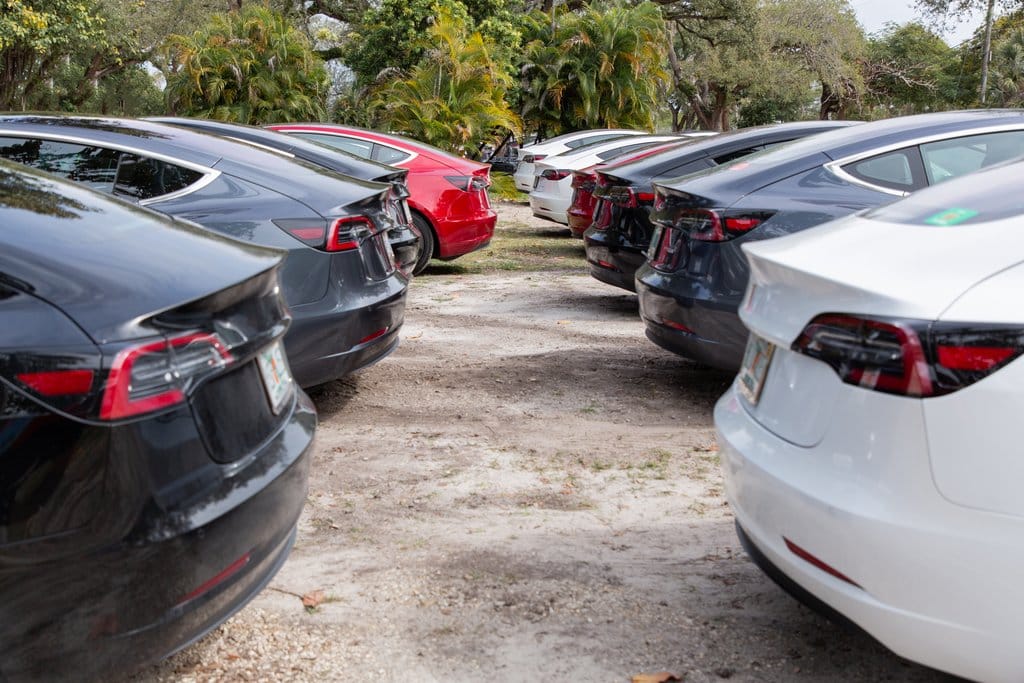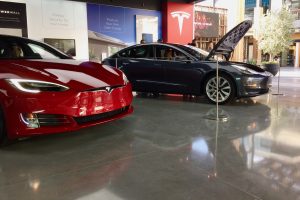At Tesla’s founding back in 2003, no one imagined the massive growth that lay ahead for the company. Or did they? As co-founder Ian Wright told me in a 2014 interview, “Martin Eberhard’s initial stimulus for starting Tesla was to build the EV he wanted to buy. Elon Musk had a much grander vision: He wanted to be the next General Motors.”
After 18 years, that hasn’t happened, but the idea no longer seems as crazy as it must have seemed then.
In 2020, GM sold 6.76 million vehicles worldwide, making it the fourth-largest automaker by sales. The largest was the Volkswagen Group, which sold 9.33 million. Tesla, which delivered 499,550 cars in 2020, would have a long climb to rival these giants. However, if the company’s phenomenal growth rate continues, it could become one of the world’s top auto brands within a decade.
Rekha Khandelwal, writing in The Motley Fool, argues that Tesla could be selling nearly 10 million cars per year by 2030, if current trends continue. Between 2016 and 2020, Tesla’s deliveries grew at an average annual rate of 65%. The company is forecasting an annual growth rate of 50% for the next several years. If Tesla reaches the 50% target in each of the next 4 years, then drops back to an average of 25% after that, there’s your 10 million by the end of the decade.
Likely scenario or pie in the sky? Of course, there are arguments to be made in both directions. A 50% growth rate is pretty spectacular, but it’s far from unheard-of for a new technology entering the upward slope of the famous S-curve. On the other hand, few new technologies are as complex as automobile production, which depends on thousands of products and services sourced from all over the world, and which is also bound up with powerful geopolitical and social trends.
Can Tesla make it to 10 million? On the supply side, we find that Tesla’s current production capacity is around 1 million units per year. Once the planned Berlin and Austin Gigafactories come on line, capacity could roughly double. Khandelwal estimates that Tesla might need as many as 16 more Gigafactories to reach 10 million deliveries per year, assuming an average capacity of 500,000 units.
On the demand side, EV sales are growing fast, especially in key markets like California and Norway, and this is just the beginning. Tesla won’t be capturing all of the new sales—the legacy automakers are slowly but surely getting charged up too. However, claims that Tesla’s importance will dwindle once Big Auto gets into the electric game are spurious, to say the least—the California carmaker has been the EV trendsetter for almost two decades, and its innovation pipeline is still flowing at full speed. The size of the electric pie isn’t fixed—it’s going to get a lot bigger, and Tesla will continue to claim a big cat’s share.
On the other hand, there are plenty of factors that might hold Tesla back from the 10-million mark. As Khandelwal points out, Tesla’s astounding growth over the last few years started from a low base. Conventional manufacturing wisdom is that, as production levels increase, growth rates slow down. Also, new constraints on production are beginning to come into view—the availability of batteries is a big one. Tesla has been proactive about this so far, broadening its base of suppliers and exploring the possibility of producing its own cells, but global demand for batteries and the raw materials that go into them is exploding, and this is unexplored territory.
It’s also entirely possible that neither Tesla, nor any other automaker, will ever again deliver 10 million cars in a year. As alternate ownership models and autonomous driving advance, some thinkers believe that the world has already reached the point of “peak auto.” In 2030, the global auto market could be much smaller, and the world’s biggest automaker—Tesla, VW or whoever that be—may be producing a mere 4 or 5 million cars per year.
Written by: Charles Morris; Source: The Motley Fool





